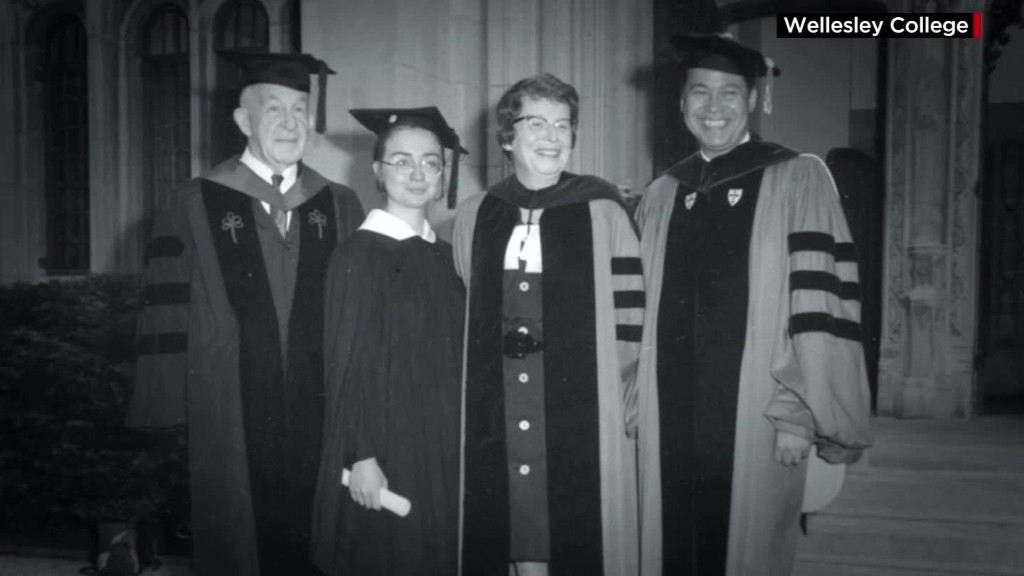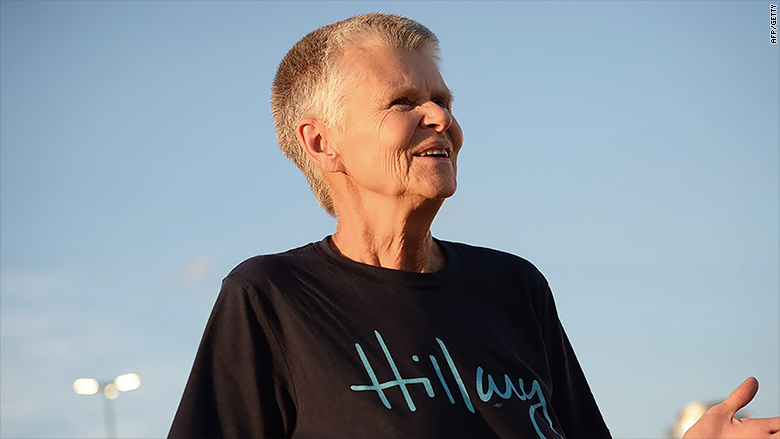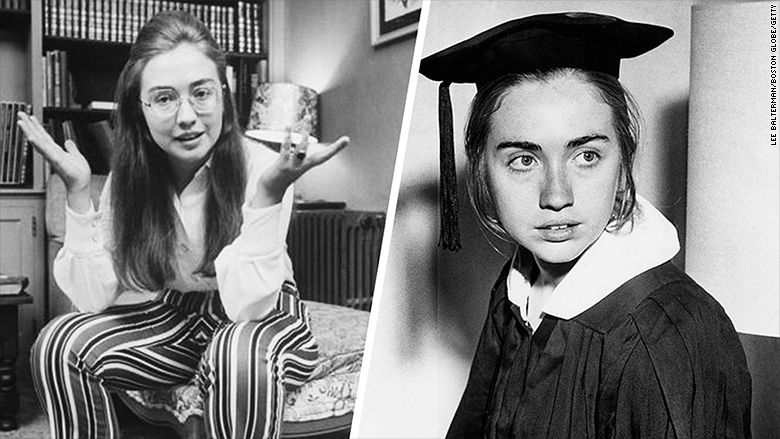
Nancy Wanderer has proudly worn an "Elect Hillary Clinton" shirt every single day from the Democratic National Convention in July until Election Day. Her car has eight Clinton campaign stickers on it.
"People approach me all the time to talk about Clinton, especially in grocery stores," says Wanderer, a retired college professor in Maine who has also knocked on many doors in her state and pivotal New Hampshire.
Clinton has received unprecedented support from American women as she seeks to break the ultimate glass ceiling. Female celebrities like Katy Perry and Beyonce have led rallies for her, and women make up 58% of her campaign donors, according to OpenSecrets.org, which tracks political fundraising.
But Wanderer is part of a secret weapon for Clinton. She isn't just a supporter, she's known Clinton personally for 50 years. They were classmates at Wellesley College, an all-women's college outside Boston with numerous glass-ceiling breakers among its graduates: Former Secretary of State Madeleine Albright; newscaster Diane Sawyer; the first female partner of Goldman Sachs (GS), Jeanette Loeb; and Apple (AAPL) board member Susan Wagner.
"I've heard a lot of people say they were on the fence about Clinton, but when they heard from someone who really knew her, they were willing to go with it," Wanderer told CNNMoney.
There are about 6,000 members of the Wellesley Women for Hillary group. They don't just see Clinton as a candidate -- she's their friend and "sister." They refer to her as "Hillary." When they talk to undecided voters, they push back on the idea that Clinton is cold or aloof.

'Hillary unfiltered'
"When you see Hillary unfiltered, then you have a sense of her compassion, her genuineness and her convictions," says Susan Esserman, one of the co-founders of Wellesley Women for Hillary and a member of the class of 1974.
Clinton's fellow Wellesley alums have organized numerous "action days" where hundreds of women register voters, knock on doors, make calls and donate. Laurelle Cheng, a 2015 Wellesley graduate, designed and sold about 1,000 t-shirts that say "Wellesley for Hillary" and "Hillary 2016." All proceeds go to the campaign.
But their biggest contribution is talking to voters about the "Hillary I know." Esserman, a partner at a law firm, hosted a fundraiser for Clinton at her home in Bethesda, Maryland, in September 2015.
"Some skeptical men came to this event. It blew them away seeing her in person," Esserman recalls. Clinton "took time and said hello to each person," including children.
Related: In Florida, it's retirees versus Latinos
Clinton's Wellesley strength
The Wellesley campaigners have become such a force that Clinton regularly acknowledges them on the campaign trail. Last month, she wrote a "long personal note" to her Wellesley political science professor and mentor Alan Schechter.
"The reason why Hillary is so loyal to Wellesley is because she feels the college did so much for her," says Schechter, now 80. "She always thanks me for my continuing support."
On a call with her Wellesley supports on October 20, she said: "I am proud to be one of you."
Two days later, at a rally in Philadelphia, her running mater Tim Kaine joked he was tired and losing his voice after only 100 days on the campaign trail. But Clinton is standing strong, he said, "because she's a Wellesley woman."

Clinton's famous 1969 speech
When people ask about Clinton, Wanderer often tells the story of their Wellesley graduation day in the spring of 1969. America was in the midst of the Vietnam War and the Civil Rights movement.
She and Clinton both served on student government (Clinton as president). They pushed for many changes on campus, including ending curfews, allowing men to set foot in the dorms (beyond Sunday afternoons) and having a student speaker at graduation.
Hillary Rodham, as she was known then, became the first student speaker. Her speech made headlines across the country, including a mention in Life Magazine because she rebuked the remarks of a Republican senator who spoke just before her. He had tried to dissuade students from protests.
"We feel that for too long our leaders have viewed politics as the art of the possible. And the challenge now is to practice politics as the art of making what appears to be impossible possible," Clinton said.

"She threw away her prepared remarks and took on a sitting U.S. senator," says Betty Hutcheon, another 1969 classmate, who has been canvassing for Clinton every weekend since September. "It was awe inspiring for someone my age."
Wanderer recalls the class of 1969 giving Clinton a standing ovation lasting for minutes. Her grandfather met her after the ceremony and immediately said, "Who was that?"
"Out of my mouth came these words, 'Take a look at her. She's going to be president of the United States one day,'" says Wanderer.


